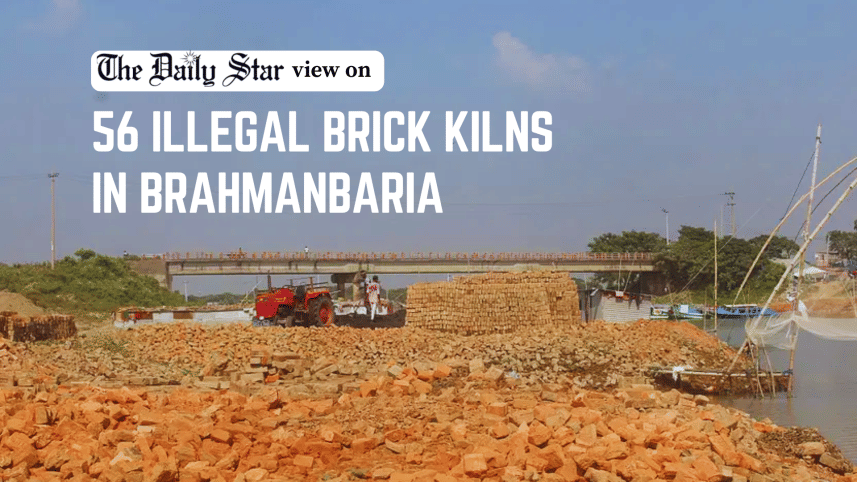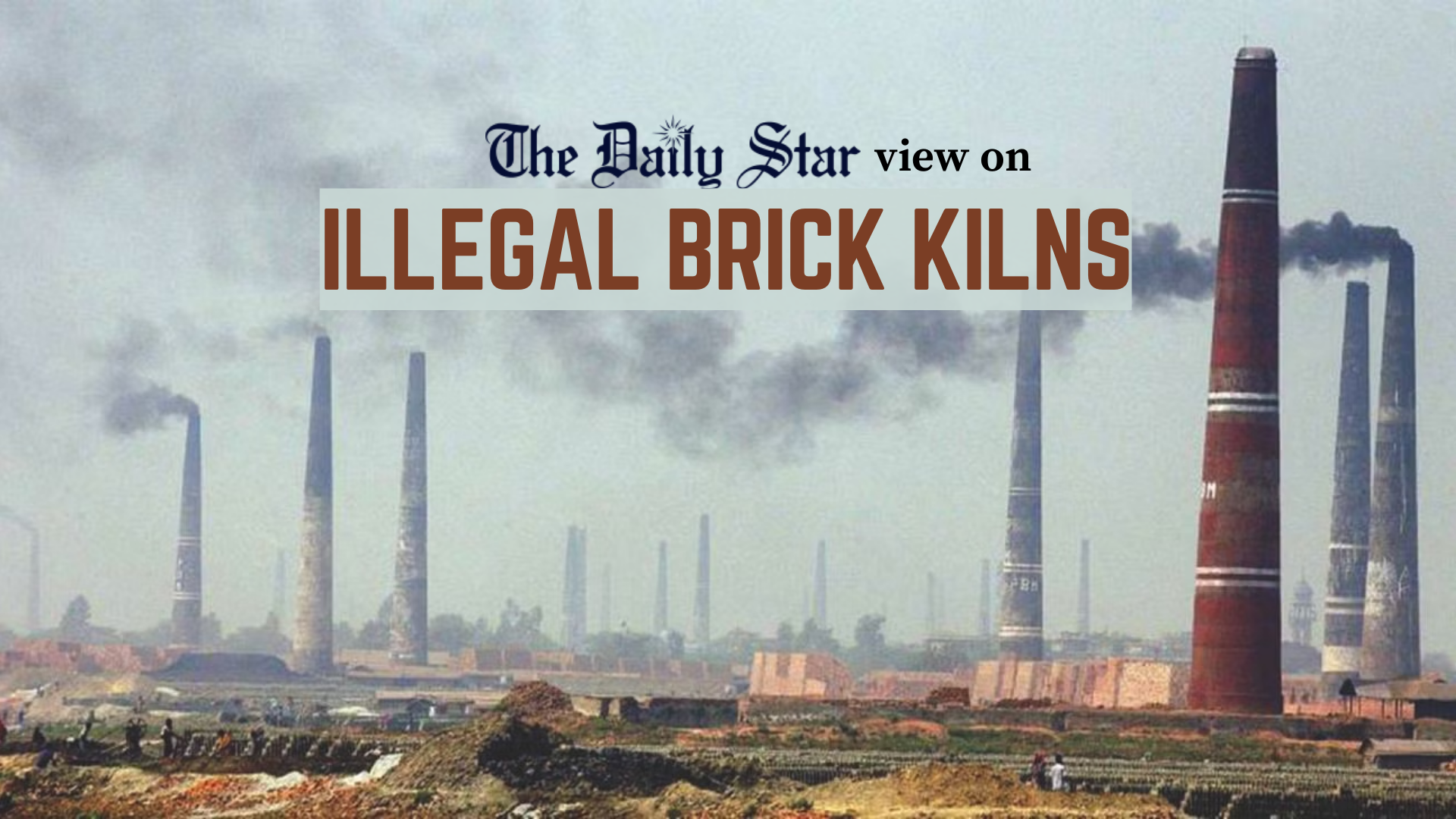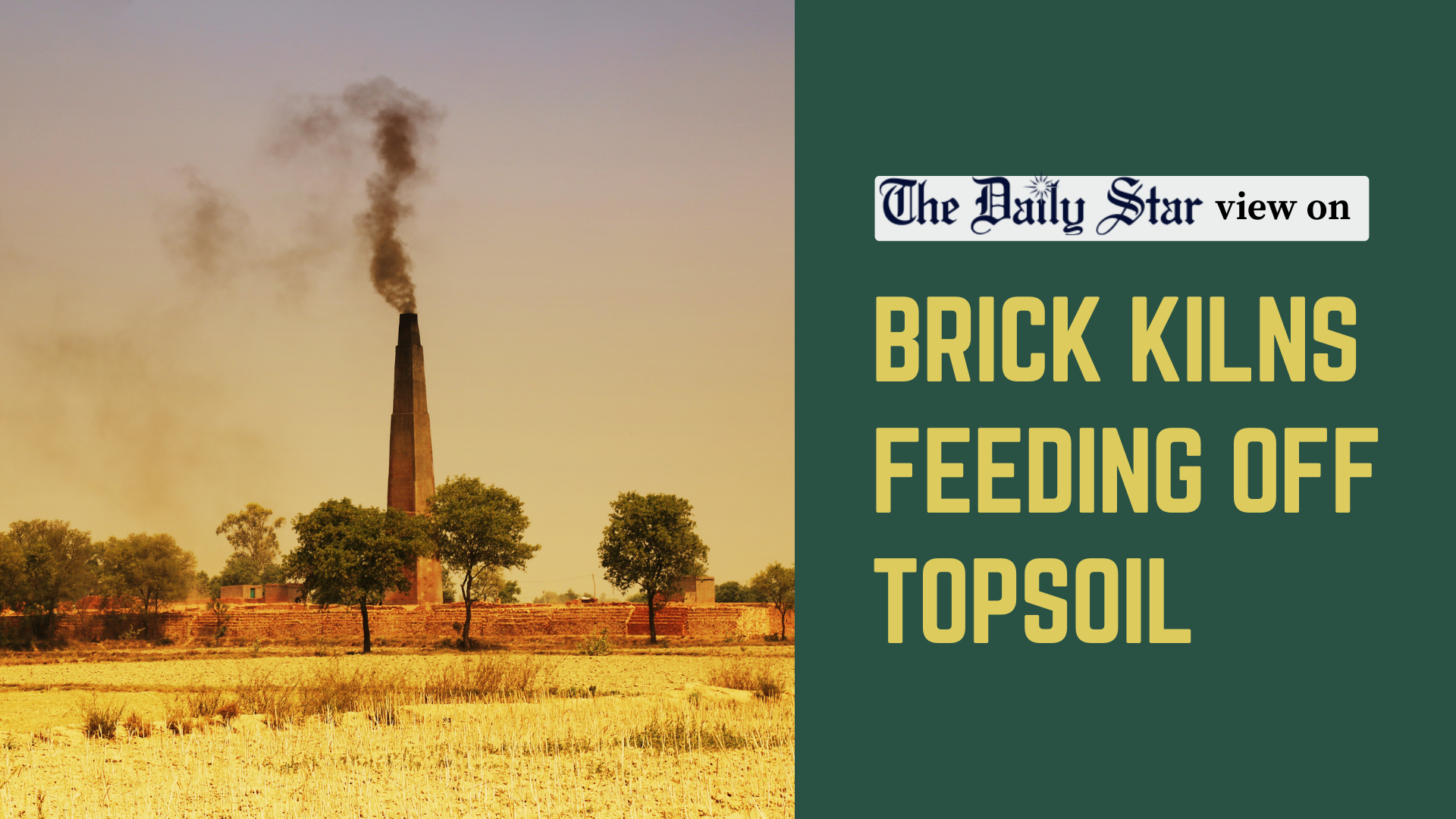Stop illegal brick kilns in Brahmanbaria

We are frustrated by the lack of satisfactory progress in removing illegal brick kilns in the country, despite repeated assurances from the authorities. These unauthorised operations, especially along riverbanks and wetlands, continue to inflict damage on the environment, public health, and rural livelihoods. Most of the kilns were set up by local influentials leveraging their political connections, so the fall of the Awami League regime on August 5 had raised hope that they would be swiftly shut down. This has not happened, at least not to the extent expected.
Brahmanbaria is one of the districts where illegal brick kilns have mushroomed over the years, often encroaching on agricultural lands and even extending into wetland areas. Currently, there are 56 such units in the district. The problem, as per a report by Prothom Alo, is particularly acute at the Sarail upazila, where a number of illegal kilns were set up along the banks of Titas River. Unfortunately, regime change hasn't had much of an effect on their operations or expansions. One example is the illegal Jisan Bricks kiln, set up by a former Awami League lawmaker occupying six acres of farmland near the Sarail-Nasirnagar-Lakhai regional highway. Despite having no valid documents, including environmental clearance or the permit for brick burning, it continues to operate even though its owner is now in jail in connection with a murder case. Reportedly, it has already erased a nearby canal.
Similar operations also continue unchecked, ravaging topsoil and burning bricks with impunity. Even open toilets have been set up along the river by kiln labourers, polluting its water. One doesn't need to be an expert to understand the cumulative effects of such activities. In addition to the various health hazards posed to local residents, these operations harm biodiversity, cause soil degradation, and lead to a decline in agricultural productivity. Yet, beyond imposing occasional fines on kiln operators, the authorities have taken no decisive action to stop them.
This has to change. We urge the government to crack down on all illegal kilns and ensure that their operations do not resume under any pretext. Given the massive damage already done to our environment by them, however, it is no longer enough to merely enforce regulations in the authorised brick kilns. We must find sustainable alternatives to traditional bricks and brick-manufacturing methods so that the demand for development can be met in an environmentally friendly way.



 For all latest news, follow The Daily Star's Google News channel.
For all latest news, follow The Daily Star's Google News channel. 


Comments